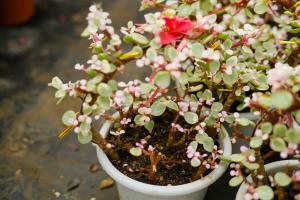Can I Water Edible Plants with Graywater?
Graywater is the wastewater generated from household activities such as washing dishes, doing laundry, and taking showers. Instead of being disposed of as sewage, graywater can be treated and reused for non-potable purposes, reducing the demand for fresh water. One potential use of graywater is to water edible plants, but is it safe to do so?
Graywater Quality
The quality of graywater depends on the source and the treatment used. Graywater from washing dishes, for instance, may contain food particles, oil, and grease, while graywater from showers and baths may contain traces of soap, shampoo, and other personal care products. Graywater may also contain microorganisms, such as bacteria, viruses, and parasites, that pose health risks to humans and animals. Therefore, the quality of graywater must be assessed before it can be used for irrigation.
Graywater Treatment
Graywater treatment is essential to remove contaminants and ensure the safety of reused water. Treatment methods can range from simple filtration, settling, and disinfection to more advanced processes, such as reverse osmosis and ultraviolet radiation. The type and extent of treatment depend on the quality of the graywater source, the intended use, and the regulatory requirements. Treatment systems can be installed at the household level or at a centralized facility, depending on the scale of the graywater reuse project.
Edible Plants and Graywater Irrigation
Irrigating edible plants with graywater can be beneficial in terms of water conservation and plant growth. Graywater contains nutrients such as nitrogen and phosphorus, which are essential for plant growth and can reduce the need for chemical fertilizers. Graywater can also improve soil quality by increasing moisture retention and promoting microbial activity. However, depending on the quality of the graywater and the nature of the edible plants, there are potential risks associated with graywater irrigation.
Risks and Precautions
Graywater irrigation can pose risks to human health if it is not properly treated, applied, or handled. Edible parts of plants, such as fruits, vegetables, and herbs, may come in contact with graywater and may contain harmful microorganisms. Ingesting contaminated plants can cause illnesses such as diarrhea, nausea, and infections. To minimize the risks of graywater irrigation, it is important to follow proper guidelines and precautions, such as:
Treating graywater to remove pathogens and pollutants
Applying graywater only to the soil, not on the aerial parts of plants
Avoiding graywater irrigation of certain crops, such as root vegetables, that are more likely to uptake contaminants
Washing and peeling edible plants thoroughly before consumption
Not using graywater for irrigation of plants that will be consumed raw, such as lettuce or berries
Monitoring the quality of the graywater and the health of the plants regularly
Conclusion
Graywater can be a valuable resource for water conservation and irrigation of edible plants. However, using graywater for irrigation requires careful consideration of the quality of the graywater, the treatment methods, and the risks associated with exposure to microorganisms. By following proper guidelines and precautions, homeowners and gardeners can safely and effectively use graywater to nourish their gardens and reduce their freshwater consumption.

 how many times do yo...
how many times do yo... how many planted tre...
how many planted tre... how many pine trees ...
how many pine trees ... how many pecan trees...
how many pecan trees... how many plants comp...
how many plants comp... how many plants can ...
how many plants can ... how many plants and ...
how many plants and ... how many pepper plan...
how many pepper plan...






























